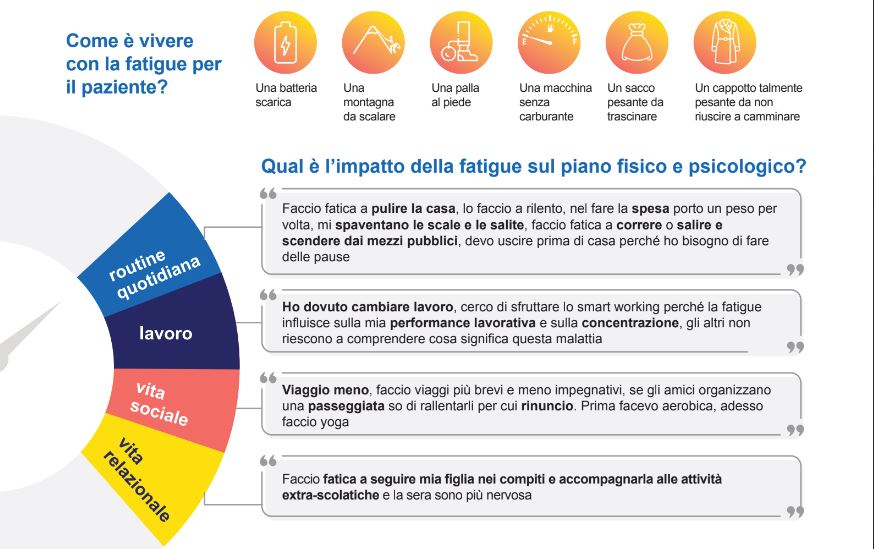MILAN (ITALPRESS) – Fatigue (chronic fatigue) is one of the most disabling symptoms noted by patients with Paroxysmal Nocturnal Hemoglobinuria (PNH), a rare blood disorder that often affects young patients. Sixty-four percent of patients experience fatigue ‘Often or ‘Almost Always’: this is a finding from the Global PNH Patient Registry, which had involved 173 patients with EPN. The burden of fatigue has also been confirmed by a recent qualitative research on the daily impact of fatigue in patients with EPN,” conducted by IQVIA for Novartis.The research findings highlight that EPN-related fatigue is not just a simple fatigue, but a persistent and debilitating symptom that does not improve with rest, with a cross-sectional impact in daily life. According to the data collected, 9 out of 10 of the patients (diagnosed with EPN for at least two years and on treatment with complement inhibitors for at least six months) rated the burden of fatigue with a score between 6 and 10 on a scale of 1 (very little) to 10 (very much).The research also shows that only half of the patients report fatigue to their doctor, either for fear of not being believed or because they consider it an unavoidable condition of EPN.Yet, reporting fatigue to one’s physician is important, as Eros Di Bona, UOC Director of Oncohematology Bassano del Grappa Hospital, explains, “Fatigue is not only a debilitating symptom, but it can also be a wake-up call of suboptimal disease control. It is a direct consequence of chronic hemolysis, the premature destruction of red blood cells that, to date, is not always fully controlled with standard of care. With new treatment options on the horizon, it will be crucial to also consider normalization of hemoglobin level, resolution of fatigue and, as a consequence, improvement of quality of life as treatment goals. “To address the need for better awareness and support, the online channel “What to know about EPN? Informed for Better Control” dedicated to patients and their families, created by MypersonalTrainer and supported by Novartis. The project is aimed not only at those who are affected by the condition, but also at those who, as family members and caregivers, face it indirectly. Users have access to specialized content to learn more about the characteristics of the disease and its impact in their daily lives. “For Novartis, it is crucial to listen to patients’ needs and respond with concrete solutions that help them manage their lives better. We believe that being informed, sharing experiences and confronting how to deal with the disease are key elements to foster a more open and collaborative dialogue with physicians,” says Chiara Gnocchi, Country Comms & Advocacy Head of Novartis Italy. “Our commitment is not only to develop effective and safe therapeutic solutions that can respond to unmet clinical needs, but also to accompany them on a better disease pathway, in which each patient feels supported and can live a better life.
– Novartis press office photo -(ITALPRESS).

